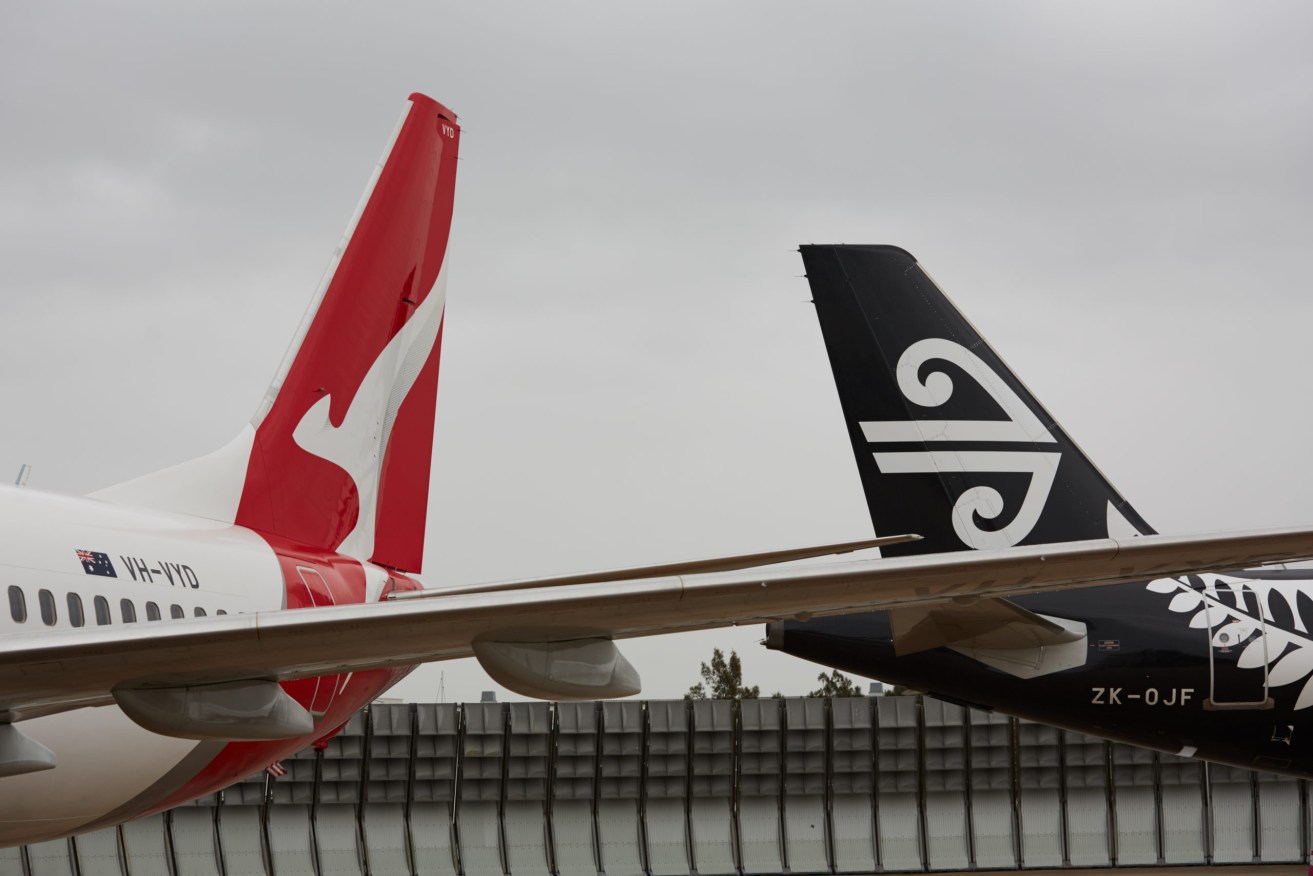Time to move: Kiwis closer to opening up after two lonely years
New Zealand will soon begin a phased reopening to the world, dismantling the hard borders which have kept the country safe from the worst of the Covid-19 pandemic, starting with Kiwis in Australia this month.

New Zealand will begin taking down its hard borders after almost two years of virtual isolation to fight Covid-19. (AAP Image/Erik Anderson)
The country has been largely adrift from the world for almost two years in a tough-as-nails approach to keeping the virus out.
That will change from February 27, when fully vaccinated Kiwis based in Australia will be allowed to sidestep quarantine, and instead self-isolate on arrival.
Two weeks later, from March 13, Kiwis further abroad will also be able to avoid quarantine, as will skilled workers and working holiday visa holders.
By July, all Australians will be able to enter – subject to the same self-isolation requirements – and in October, the government has pledged borders will “fully reopen to visitors from anywhere in the world, and all visa categories fully reopen”.
“It’s time to move,” Prime Minister Jacinda Ardern said in Auckland on Thursday, announcing the changes.
“Now it is time, to move forward together, safely.”
As part of the changes, all arrivals will be given three rapid antigen tests at the airport to take home – one for initial use, one for use later in isolation, and another as backup.
“That gives us the best chance of identifying cases that have come across the border,” Ms Ardern said.
NZ’s border policies have minimised the loss of life during the pandemic, first eliminating Covid-19 in 2020, then delaying the arrival of the Delta and Omicron variants.
However, there have been growing calls to lessen quarantine provisions – known locally as MIQ – as Kiwis seek easier pathways in and out of Aotearoa.
The case of Charlotte Bellis, a pregnant Kiwi journalist working in Afghanistan who found herself unable to navigate MIQ rules to come home to give birth, has reignited calls to ease restrictions.
Beyond Ms Bellis, there are thousands of other trans-Tasman families or Kiwis seeking to travel for myriad reasons.
There is also a legal challenge to the MIQ regime, crowdfunded by lobby group Grounded Kiwis, to go before the High Court this month.
“It’s easy to hear the word MIQ and immediately associate it with heartache. There is no question, that for New Zealand, it has been one of the hardest parts of the pandemic,” Ms Ardern said.
“The anguish of MIQ has been real, and heart breaking. But the choice to use it, undeniably saved lives.”
The government will now downscale MIQ, but keep it in place for high-risk travellers, including the unvaccinated.
A previous plan to reopen borders last month was discarded by Ms Ardern, who cited the need to up vaccination rates in the wake of Omicron.
That has happened. With 93 per cent of those aged 12 or over double-dosed, NZ now boasts jab rates among the highest in the world.
Community transmission of Omicron has been detected over the past fortnight, and case numbers are again rising.
Public health experts and outbreak modellers say the current daily case record – 222 – will be beaten within days, and case numbers will be in the thousands this month.
Those projections are the reason NZ will continue to impose the self-isolation requirement in coming months, as Ms Ardern seeks to avoid an explosion of case numbers similar to Australia’s experience over summer.
The country’s health system is considerably weaker than Australia’s, with fears hospitals and intensive care units could be overrun.
NZ’s Covid-19 death toll stands at 53, compared with Australia’s 3907.












